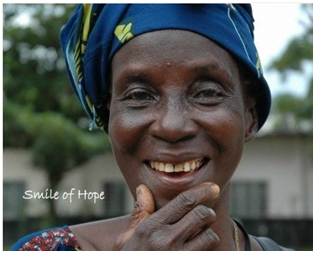Too often, a truncated gospel message has accompanied our outreach efforts. As Scott Allen has written elsewhere, an artificial division between personal faith and daily life leaves a fragmented Christianity, full of gaps. The effects are perhaps nowhere more obvious than in Africa. Church movements have been built on the sacred-secular divide, a truncated framework that results in serious gaps of understanding,
Our colleague Chris Ampadu in Ghana recently responded to a question from an expatriate in Sierra Leone. Because the question and the answer speak so clearly to issues at the heart of what DNA is all about, we got their permission to excerpt their exchange for our readers.
Kim Kargbo is International Director of Women of Hope International. She writes:
I have worked in Sierra Leone for many, many years and the brokenness of the church (heresy, corruption, moral failures of leadership, poor teaching, syncretism, etc) is affecting every aspect of life and development in the country. It is a huge barrier to ANY development work. I would love to hear the thoughts of someone, particularly an African, on why that is.
 We work in disability ministry and we are frequently asked what we are doing to collaborate with the local church. We are doing discipleship with women with disabilities. They have been so hurt by the churches in the area that we are hesitant to channel them into local churches because of the amount of false teaching that is prevalent in the churches in our area. It has been our long-time prayer to find a ministry that we could work alongside in helping to disciple the church (we don’t feel that this is our place – both because it isn’t what God has called us to, and because we are a women-led ministry).
We work in disability ministry and we are frequently asked what we are doing to collaborate with the local church. We are doing discipleship with women with disabilities. They have been so hurt by the churches in the area that we are hesitant to channel them into local churches because of the amount of false teaching that is prevalent in the churches in our area. It has been our long-time prayer to find a ministry that we could work alongside in helping to disciple the church (we don’t feel that this is our place – both because it isn’t what God has called us to, and because we are a women-led ministry).
Chris Amapadu is West Africa Coordinator for Samaritan Strategy Africa, the DNA affiliate in Africa. Chris responds:
Thanks Kim for your message. The problem of success and progress is Africa wide and does not relate to Sierra Leone alone. I think it is the same in Liberia, Ivory Coast, Nigeria, Ghana, etc. We in Africa have deep-seated worldviews that have to do with our animistic religion. It impacts our tradition, culture, attitudes, behavior and general way of life. Unfortunately, those early people who brought the message of the Bible to West Africa thought people can come to Christ just by saving their souls. Traditional Africa Religion is wholistic, just like Islamic religion, and in addressing the African belief systems, the biblical story ought to be addressed wholistically. If not, many may be converted, churches may be planted, church rooms may be filled, but “believers” will still be corrupt, fraudulent, lazy and will live in hatred, envy and jealousy. We need to use biblical truths to get to the roots of African beliefs, mind and heart, to enable people to come out of their problems.
Samaritan Strategy has been working in Sierra Leone for the past 5 years training and equipping pastors and church leaders in the area of worldview and development and also wholistic ministry. These training programs have opened up huge opportunities for the pastors to be more trained in addressing false teaching and replacing lies with biblical truth. If you are interested to forge a relationship with our newly constituted team, kindly let me know so that l can link you up to some of them.
Thanks so much and God Bless.
Scott Allen added this helpful information:
DNA has a huge heart to address the false teaching that happens in and outside the church, particularly as it relates to the role and value of women. One of the greatest lies that Satan uses to enslave and impoverish nations is that men are superior to women.
I’d like to recommend to you a book that my colleague (and DNA co-founder) Darrow Miller wrote on this topic a few years back: Nurturing the Nations: Reclaiming the Dignity of Women in Building Healthy Cultures. I believe you will find it to be a big help.





